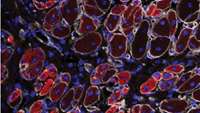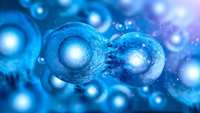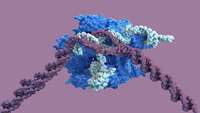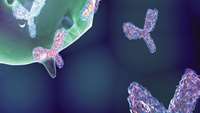Researchers demonstrate the efficiency of producing stem cells from the tissues of the umbilical cord
RUDN researchers have proposed freezing parts of human umbilical cord, among other things, to obtain stem cells. Unlike conserved umbilical blood, the perivascular tissue of the umbilical cord (Whartons jelly) is an effective and safe source of mesenchymal stem cells. An article describing the results of the work was published in Stem Cell Research & Therapy.
Stem cell researchers develop promising technique to generate new muscle cells in lab
To help patients with muscle disorders, scientists at The University of Texas Health Science Center at Houston (UTHealth) have engineered a new stem cell line to study the conversion of stem cells into muscle. Findings appeared in Cell Reports.
Researchers develop more efficient system to reprogram stem cells
Induced pluripotent stem cells, the workhorse of many regenerative medicine projects, start out as differentiated cells that are reprogrammed to pluripotent stem cells by exposure to a complex set of genetic cocktails. Mayo researchers now report that using the measles virus vector; theyve trimmed that multi-vector process with four reprogramming factors down to a single "one cycle" vector process.
How glial cells develop in the brain from neural precursor cells
Two types of cells are active in the brain: nerve cells and glial cells. Glial cells have long been regarded primarily as supportive cells, but researchers increasingly recognize that they play an active role in the communication between neurons in the brain.
Autologous stem cell transplant may aid some with nodal PTCL
Autologous stem cell transplantation (ASCT) may be beneficial for some patients with nodal peripheral T-cell lymphoma (PTCL) in the first complete remission (CR1), according to a study published online Jan. 29 in Cancer.
Going viral: New cells for norovirus production in the lab
An Osaka University-led research team has developed a system for simply and efficiently producing human norovirus. By coaxing human induced pluripotent stem cells (iPSCs) to develop into a type of cell that usually lines the intestine, they created a cellular environment that can be used for producing the virus, studying how it interacts with human cells, and investigating potential vaccines.
In their DNA: Rotator cuff stem cells more likely to develop into fat cells
Why are fat deposits more likely to occur after tears of the shoulders rotator cuff, compared to other types of muscle injuries? An increased propensity of stem cells within with rotator cuff muscles to develop into fat cells may explain the difference, reports a study in the February 6, 2019 issue of The Journal of Bone & Joint Surgery.
Maintaining the unlimited potential of stem cells
Embryonic stem cells (ESCs) are the very definition of being full of potential, given that they can become any type of cell in the body. Once they start down any particular path toward a type of tissue, they lose their unlimited potential. Scientists have been trying to understand why and how this happens in order to create regenerative therapies that can, for example, coax a persons own cells to replace damaged or diseased organs.
CRISPR gene editing makes stem cells invisible to immune system
UC San Francisco scientists have used the CRISPR-Cas9 gene-editing system to create the first pluripotent stem cells that are functionally "invisible" to the immune system, a feat of biological engineering that, in laboratory studies, prevented rejection of stem cell transplants
Antibody could increase cure rate for blood, immune disorders
An antibody-based treatment can gently and effectively eliminate diseased blood-forming stem cells in the bone marrow to prepare for the transplantation of healthy stem cells, according to a study in mice by researchers at the Stanford University School of Medicine.


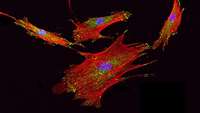
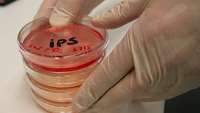
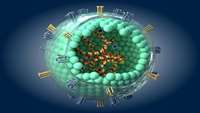
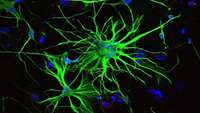
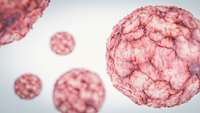
_125037.jpg)
